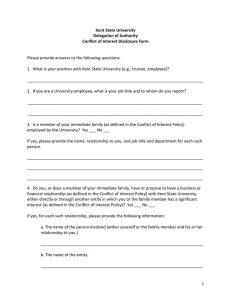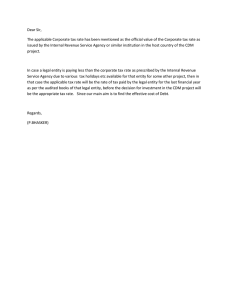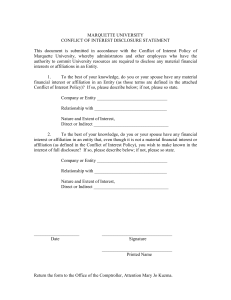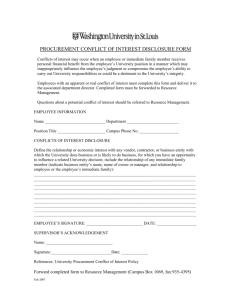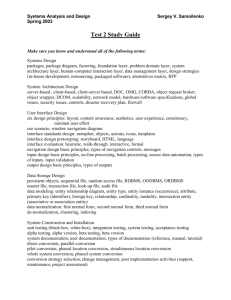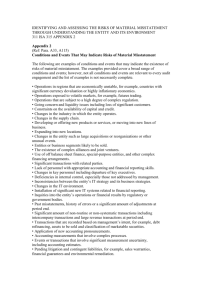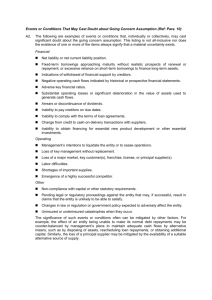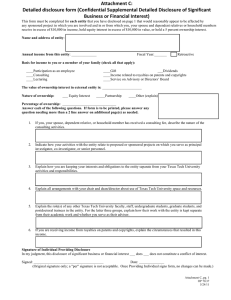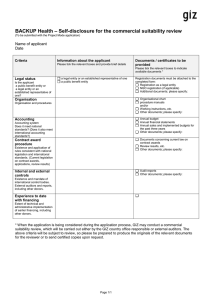APB Opinion #22 (paragraphs 12 and 13)
advertisement
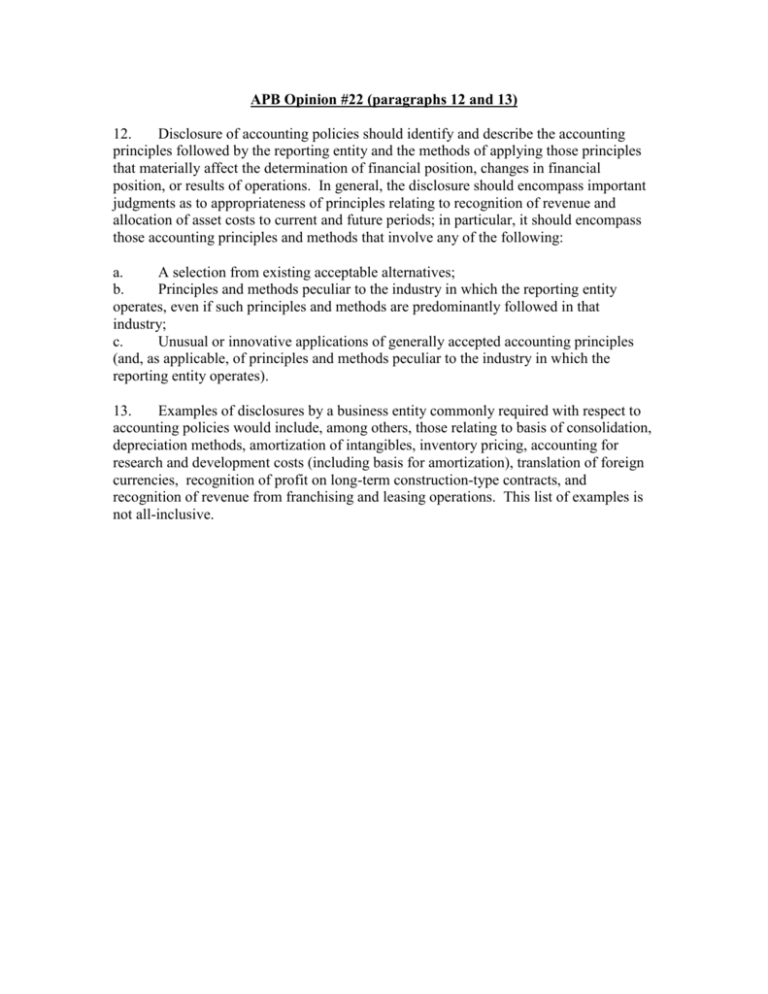
APB Opinion #22 (paragraphs 12 and 13) 12. Disclosure of accounting policies should identify and describe the accounting principles followed by the reporting entity and the methods of applying those principles that materially affect the determination of financial position, changes in financial position, or results of operations. In general, the disclosure should encompass important judgments as to appropriateness of principles relating to recognition of revenue and allocation of asset costs to current and future periods; in particular, it should encompass those accounting principles and methods that involve any of the following: a. A selection from existing acceptable alternatives; b. Principles and methods peculiar to the industry in which the reporting entity operates, even if such principles and methods are predominantly followed in that industry; c. Unusual or innovative applications of generally accepted accounting principles (and, as applicable, of principles and methods peculiar to the industry in which the reporting entity operates). 13. Examples of disclosures by a business entity commonly required with respect to accounting policies would include, among others, those relating to basis of consolidation, depreciation methods, amortization of intangibles, inventory pricing, accounting for research and development costs (including basis for amortization), translation of foreign currencies, recognition of profit on long-term construction-type contracts, and recognition of revenue from franchising and leasing operations. This list of examples is not all-inclusive.

